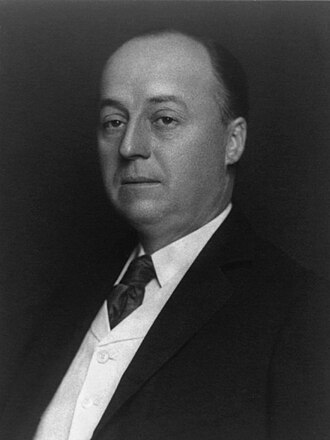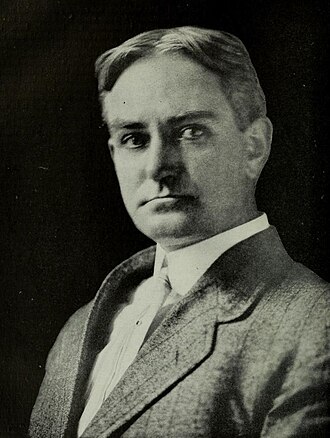Discover Your Roots
SIGN UPDiscover Your Roots
SIGN UPPhilander is a male name of Greek origin that means "Lover Of Man." This name carries a sense of affection and compassion, reflecting the Greek roots of its meaning. Notable individuals with the name Philander include Philander Chase, an influential figure in the Episcopal Church and education, as well as Philander C. Knox, a prominent American lawyer and politician. The name has a rich historical significance and has been associated with various accomplished individuals in different fields. Philander is a name that conveys warmth and empathy, reflecting a deep appreciation for humanity. With its Greek origins and meaningful significance, Philander is a name that embodies love and respect for others.[Word count: 109]

Philander Chase Knox, born on May 6, 1853, was a prominent American lawyer, bank director, and statesman, known for his tenure in the United States Senate and his service as the United States Attorney General and Secretary of State. Hailing from Brownsville, Pennsylvania, Knox gained recognition as a leading attorney in Pittsburgh, co-founding the law firm of Knox and Reed. Throughout his career, he also held directorial positions at the Pittsburgh National Bank of Commerce and the Pennsylvania Bar Association. Knox played a crucial role in the organization of the United States Steel Corporation and was involved in the aftermath of the Johnstown Flood as a member of the South Fork Fishing and Hunting Club. His marriage to Lillian "Lillie" Smith, daughter of Andrew Darsie Smith, resulted in several children, including Hugh Knox. His legacy includes his contributions to dollar diplomacy and his involvement in the rejection of the Treaty of Versailles. Knox's impact on American politics and law remains significant, and his influence extended beyond his lifetime, making him a noteworthy figure in American history.

Philander Prescott (September 17, 1801 – August 18, 1862) was a prominent American trader, interpreter, and pioneer, known for his contributions to the development of Wisconsin and Minnesota. Hailing from Phelps, Ontario County, New York, Prescott ventured westward in 1819, eventually settling in what is now Prescott, Wisconsin, a town named in his honor. His marriage to Na-he-no-Wenah, also known as Mary Ke E Hi, led to the birth of several children. Prescott's multifaceted career saw him serve as a government interpreter of the Dakota language, work as a miner and trapper, manage trading posts, and engage in farming. Notably, he operated a trading post along the St. Croix River, which later evolved into the town of Prescott, Wisconsin. Tragically, Prescott met his demise during the Dakota War of 1862, and he, along with his wife and son, was laid to rest in the Minneapolis Pioneers and Soldiers Memorial Cemetery. His extensive papers are preserved in the Minnesota Historical Society library, providing valuable insights into the historical landscape of the Old Northwest. For those interested in delving deeper into his life and legacy, "The Recollections of Philander Prescott, Frontiersman of the Old Northwest, 1819-1862," edited by Donald Dean Parker, offers a comprehensive exploration of his experiences and contributions.

Philander Priestly Claxton (September 28, 1862 – January 12, 1957) was an influential American educator known for his significant contributions to public education. Born in Bedford County, Tennessee, Claxton pursued his education at the University of Tennessee, where he earned both his Bachelor's and Master's degrees before furthering his studies at Johns Hopkins University and in Germany. Notably, he became the superintendent of schools in North Carolina and a professor at the North Carolina State Normal and Industrial College. Claxton also held the position of Professor of Education at the University of Tennessee and served as the United States Commissioner of Education, where he expanded the role and activities of the United States Bureau of Education.Throughout his career, Claxton focused on improving education at all levels, influencing both lower and higher education. His efforts and dedication to educational reform earned him the reputation of being the "Horace Mann of the South." In recognition of his contributions, the Philander P. Claxton Award was established to honor individuals who made significant impacts on higher education in Tennessee. Additionally, several schools and locations, including an elementary school in Asheville, North Carolina, were named after him. Claxton's legacy continues to inspire and influence the field of education to this day.

Philander P. Humphrey (February 26, 1823 – August 18, 1862) was an American physician and politician known for his contributions in the medical and political fields. Born in Torrington, Connecticut, Humphrey received his medical training at Oberlin College before relocating to Red Wing, Minnesota Territory in 1852. He made a significant impact on the political landscape by serving in the Minnesota Territorial Council in 1857. Tragically, Humphrey, along with his wife and two children, lost their lives in the Battle of Lower Sioux Agency on August 18, 1862. This incident occurred as they were fleeing towards Fort Ridgely during the attack, with only their twelve-year-old son surviving and eventually reaching the fort. Humphrey's dedication to both medicine and public service left a lasting legacy, and his untimely death is a poignant part of American history.

All images displayed on this page are sourced from Wikipedia or Wikimedia Commons.We use these images under their respective Creative Commons or public domain licenses. Wherever applicable, author attributions and license information are provided. If you believe an image is used incorrectly or outside its license terms, please contact us so that we can review and correct the issue.